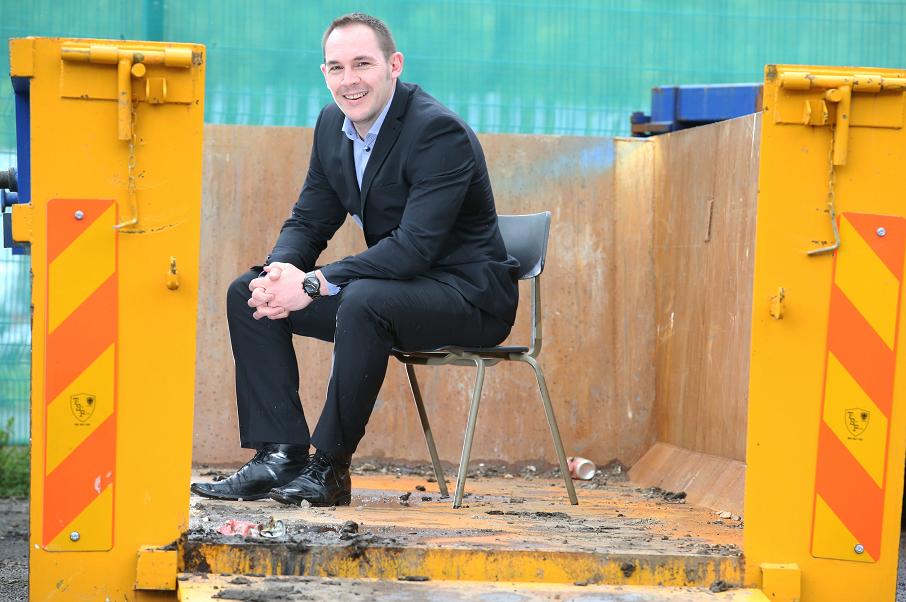Pontypool-based national skip hire firm, The Skip Company, is celebrating its first year in business with ambitious expansion plans, including launching a new waste management service and creating new recycling revenue opportunities for businesses across the UK.
At a time when any business largely dependent on the fortunes of the construction industry might struggle, The Skip Company has experienced significant growth during the past 12 months, with turnover increasing steadily and expected to approach £1.55 million since trading began, by the end of May.
From small beginnings, the firm has expanded from just two staff to a team of six. Further recruitment this year is inevitable as The Skip Company continues to change expectations within the industry, differentiating itself from the traditional waste brokerage suppliers, including by providing a much-needed ‘one stop shop’ for waste management needs.
Managing director, Matthew Davies, admits that, given the economic climate, launching The Skip Company was not without its challenges.
“Some people thought it was high risk to establish a business when we are in recession and there appears to be a downturn in the construction industry. The waste management sector is also known to be a difficult and saturated marketplace. It’s very competitive, low margin work, and is highly legislated, which can be restrictive.
“However, we looked into it very carefully and, in spite of those obstacles, we’ve enjoyed steady growth, selling more skips each month and continuing to grow our client base, as well as receiving a lot of repeat business.”
The key to this success has been fully utilising the firm’s considerable industry expertise to offer the most cost effective and holistic solutions for both consumer and commercial clients. These are distinct markets, with consumers needing expert advice to ensure that the skip is “fit for the job” as well as the security of knowing the skip will be collected and its contents correctly and legally disposed of – and all for the most competitive prices.
Commercial clients demand the same expert advice but also appreciate the unique contractor control that The Skip Company provides, ensuring strict waste disposal compliance, a full audit trail and reporting service, including of the recycling and reuse volumes generated by the site. This enables the client to concentrate on their core business with confidence, safe in the knowledge that their waste management needs are being taken care of.
In addition, the Skip Company can advise businesses of potential income that can be generated from waste material by selling it on as recyclate. The firm’s next goal is to get a top-ten construction firm on board, along with offering not just fixed price waste management solutions but a full complement of associated services to its larger clients. Out-sourced waste management and recycling solutions along with specific waste streams, such as hazardous waste, are other areas being explored.
As Matthew Davies explained: “There is a lot of value in waste and we can help advise firms on what can be sold on and what they can expect to receive, opening up another potential revenue stream.
“In my view, our success is an indication that the building industry is getting busier, although I accept that local firms not trading on a national basis as we do, might not share my optimism.”
Hiring around 100 skips a day, The Skip Company does the majority of its business with clients in the UK’s major cities, in particular London, Bristol, Cardiff and Leeds. Clients range from consumer to commercial customers, who need skips for new builds, upgrades, manufacturing and retail waste and house refurbishments.
Mr Davies admits there have, however, been some more unusual requests: “We were once asked to provide skips for a film production for use as props and they’ve also been used just for shoes. That is a lot of shoes. We also had one client who filled a skip with liquid concrete, which wasn’t so great for us.
“In an industry that is constantly evolving, nothing stands still for long. Technological advancements and changes in tax and legislation mean there is always something new to navigate. But we are relishing those challenges and, after such a successful first year, we are extremely confident about our future.”


















